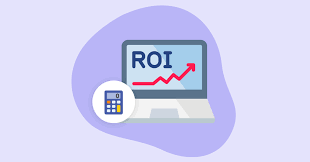In the ever-evolving landscape of modern business, the role of a business analyst is a crucial pillar supporting strategic vision and operational execution. Today, business analysts are not just adapting to change, they are driving it. They are harnessing the transformative power of Artificial Intelligence (AI) to glean deeper insights, drive informed decisions, and propel organizational success. This fusion of human expertise with AI-powered tools opens new vistas for business analysis, promising enhanced efficiency, precision, and strategic foresight. In this discourse, we delve into the symbiotic relationship between AI and business analysis, exploring how the judicious integration of AI technologies can empower analysts to navigate complexities, optimize processes, and deliver unparalleled value to their organizations.
Understanding AI in Business Analysis
Before delving into how AI can enhance business analysis, it’s essential to grasp its role in this domain. AI encompasses various technologies that simulate human intelligence, including machine learning, natural language processing (NLP), and predictive analytics. These technologies can analyze vast datasets, identify patterns, make predictions, and automate repetitive tasks, revolutionizing business analysts’ work.
Leveraging AI for Data Analysis
Data is the lifeblood of modern businesses, and business analysts spend significant time collecting, processing, and analyzing data to extract actionable insights. However, this process is time-consuming and prone to human error. This is where AI-powered tools come in. They can streamline this process by automating data collection from various sources, cleaning and preprocessing data, and performing complex analyses in a fraction of the time it would take manually. This not only saves time but also ensures accuracy and reliability in data analysis. Check out more information about Business Analyst Training Course.
Machine learning algorithms, for instance, can identify trends and correlations within datasets that might go unnoticed by human analysts. By harnessing AI-driven data analytics platforms, business analysts can uncover valuable insights that not only inform strategic decision-making but also instill confidence in the decisions made. These insights could range from identifying market trends, understanding customer behavior, to optimizing operational processes, all of which contribute significantly to the strategic direction of the business.
Enhancing Decision-Making with Predictive Analytics
Predictive analytics is one of AI’s most valuable applications in business analysis. By analyzing historical data and identifying patterns, predictive models can accurately forecast future trends, outcomes, and potential risks. Business analysts can use these insights to anticipate market fluctuations, identify emerging opportunities, and mitigate potential threats before they escalate.
For example, predictive analytics can help retailers forecast product demand, allowing them to optimize inventory management and pricing strategies. Similarly, in finance, predictive models can assess credit risk, detect fraudulent activities, and maximize investment portfolios based on market trends.
Improving Stakeholder Communication with Natural Language Processing
Effective communication is paramount for business analysts to clearly convey insights and recommendations to stakeholders. Natural Language Processing (NLP) algorithms enable computers to understand, interpret, and generate human language, facilitating seamless communication between business analysts and stakeholders.
NLP-powered chatbots and virtual assistants can provide real-time insights, answer queries, and assist stakeholders in making informed decisions. Additionally, sentiment analysis algorithms can analyze customer feedback, social media conversations, and market trends, providing valuable insights into customer preferences and perceptions. Check out more information about CBAP Exam Questions.
Streamlining Workflows with Process Automation
Business analysts often find themselves bogged down by repetitive tasks, such as generating reports, updating spreadsheets, or conducting routine data analyses. AI-driven process automation tools can alleviate this burden by automating mundane tasks, freeing up time for analysts to focus on higher-value activities.
For instance, robotic Process Automation (RPA) software can automate data entry, document processing, and workflow management, reducing errors and improving efficiency. By integrating AI-powered automation solutions into their workflow, business analysts can streamline processes, accelerate decision-making, and drive productivity gains across the organization.
Cultivating Domain Expertise with AI-Powered Learning
Continuous learning is essential for business analysts to stay in tune with industry trends, emerging technologies, and best practices. AI-powered learning platforms leverage machine learning algorithms to personalize learning experiences, recommending relevant courses, articles, and resources based on the analyst’s interests and skill level.
Moreover, AI-driven learning platforms can simulate real-world scenarios, allowing analysts to apply theoretical concepts in practical settings and hone their problem-solving skills. By embracing AI-powered learning, business analysts can cultivate domain expertise, expand their skill set, and remain agile in an ever-evolving business environment. Check out more information about ECBA Exam Questions.
Ethical Considerations and Data Privacy
While AI offers tremendous potential to enhance business analysis, it raises ethical considerations and concerns about data privacy. Business analysts must ensure that AI algorithms are trained on unbiased data and transparent methodologies to mitigate the risk of perpetuating societal biases or making flawed decisions.
Furthermore, analysts must adhere to strict data privacy regulations, such as GDPR or CCPA, to safeguard sensitive information and ensure compliance with legal requirements. By adopting ethical AI practices and prioritizing data privacy, business analysts can harness the power of AI responsibly while maintaining trust and integrity in their analyses.
Conclusion
In conclusion, AI has become a a game-changer for business analysts, empowering them to extract actionable insights, drive strategic decision-making, and deliver tangible value to organizations. By leveraging AI-driven data analytics, predictive modeling, NLP, process automation, and continuous learning, business analysts can elevate their skills, streamline workflows, and stay ahead of the curve in today’s competitive landscape.
However, it’s essential to approach AI adoption cautiously, considering ethical implications and data privacy concerns. By embracing ethical AI practices and prioritizing transparency and accountability, business analysts can harness AI’s full potential while upholding integrity and trust in their analyses. Ultimately, by embracing AI as a strategic enabler, business analysts can unlock new opportunities, drive innovation, and drive sustainable growth for their organizations.





